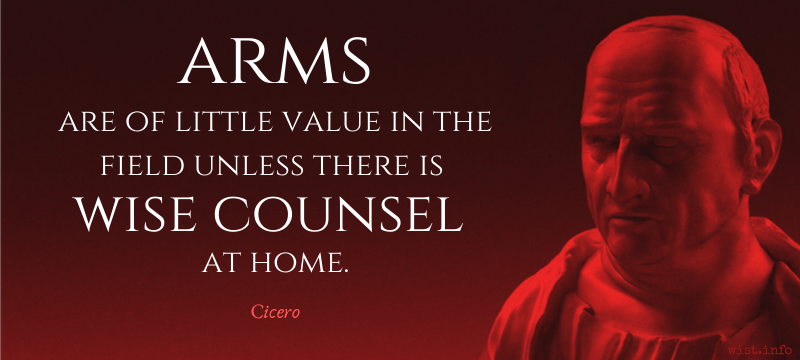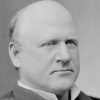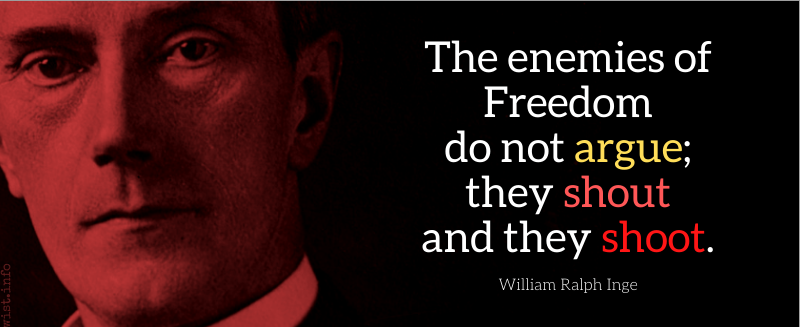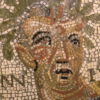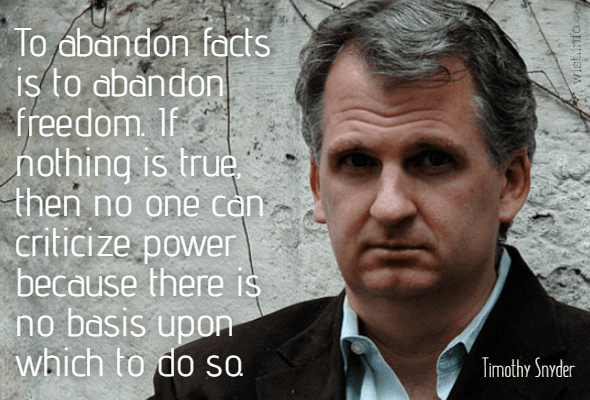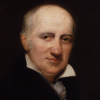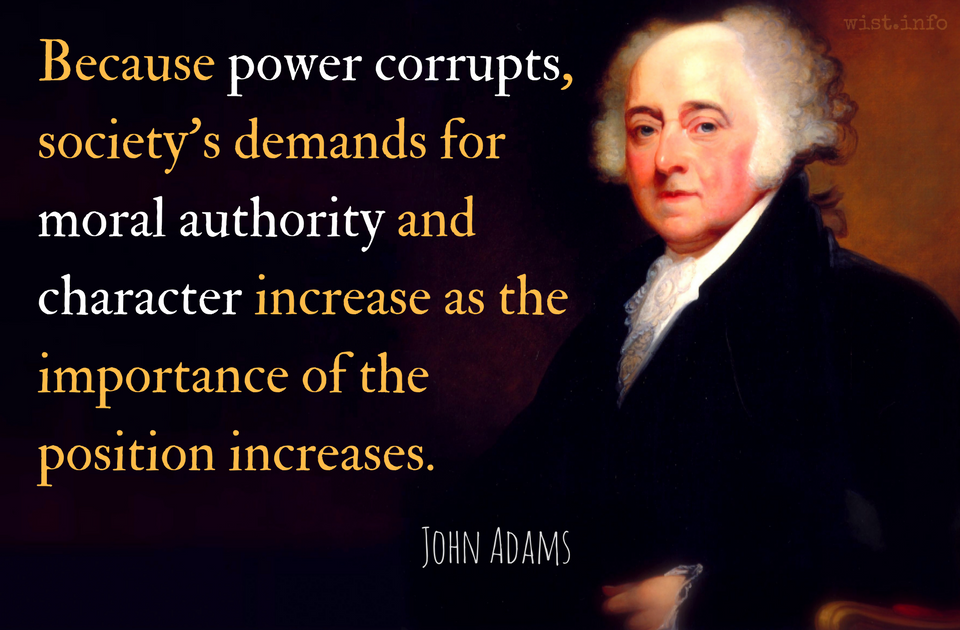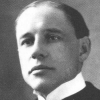Never be deceived that the rich will allow you to vote away their wealth.
Lucy Parsons (1851-1942) American labor organizer, anarchist, orator [a.k.a. Lucy Gonzalez]
Speech, Founding Convention of the Industrial Workers of the World (27 Jun 1905)
(Source)
Reprinted in Freedom, Equality and Solidarity: Writings & Speeches, 1878-1937.
Quotations about:
power
Note not all quotations have been tagged, so Search may find additional quotes on this topic.
For the old notions of civil liberty and social order did not benefit the masses of the people. Wealth increased, without relieving their wants. The progress of knowledge left them in abject ignorance. Religion flourished, but failed to reach them. Society, whose laws were made by the upper class alone, announced that the best thing for the poor is not to be born, and the next best, to die in childhood, and suffered them to live in misery and crime and pain. As surely as the long reign of the rich has been employed in promoting the accumulation of wealth, the advent of the poor to power will be followed by schemes for diffusing it. Seeing how little was done by the wisdom of former times for education and public health, for insurance, association, and savings, for the protection of labour against the law of self-interest, and how much has been accomplished in this generation, there is reason in the fixed belief that a great change was needed, and that democracy has not striven in vain.
John Dalberg, Lord Acton (1834-1902) British historian
“Review of Sir Erskine May’s Democracy in Europe,” The Quarterly Review (Jan 1878)
(Source)
All citizens do have a measure of control, at least in democracies where their votes are counted, of how they belong to their nations. Perhaps they will have more confidence in unconventional choices if they see that each nation’s founders were disobedient and unpredictable, men and women of imagination and ambition. The steel of every national monument was once molten.
Timothy Snyder (b. 1969) American historian, author
The Red Prince, “Orange: European Revolutions” (2008)
(Source)
When the weak want to give an impression of strength they hint meaningfully at their capacity for evil. It is by its promise of a sense of power that evil often attracts the weak.
Eric Hoffer (1902-1983) American writer, philosopher, longshoreman
The Passionate State of Mind, Aphorism 91 (1955)
(Source)
Jesus was not brought down by atheism and anarchy. He was brought down by law and order allied with religion, which is always a deadly mix. Beware of those who claim to know the mind of God and who are prepared to use force, if necessary, to make others conform. Beware of those who cannot tell God’s will from their own. Temple police are always a bad sign. When chaplains start wearing guns and hanging out at the sheriff’s office, watch out. Someone is about to have no king but Caesar.
Barbara Brown Taylor (b. 1951) American minister, academic, author
“The Perfect Mirror,” Christian Century (18-25 Mar 1998)
(Source)
You don’t get the power you ask for, you get the power you take.
In my opinion, most of the great men of the past were only there for the beer — the wealth, prestige and grandeur that went with the power.
A. J. P. Taylor (1906-1990) British historian, journalist, broadcaster [Alan John Percivale Taylor]
“Fiction in History,” Times Literary Supplement (23 Mar 1973)
Reprinted in his Essays in English History (1976).
Despotic authority attaches great importance to being considered strong, and much less to being admired for its wisdom. Besides, what does wisdom mean to a despot? It means skill in the use of power. The wise despot knows when and how to strike. This continual display of power is necessary because, at root, any dictatorship appeals to the lowest instincts of the governed: fear, aggressiveness toward one’s neighbors, bootlicking. Terror most effectively excites such instincts, and fear of strength is the wellspring of terror.
Ryszard Kapuściński (1932-2007) Polish journalist, photographer, poet, author
Shah of Shahs (1982)
(Source)
People become wedded to their beliefs, because the validity of those beliefs reflects on their competence, commends them as authorities, and rationalizes their mandate to lead. Challenge a person’s beliefs, and you challenge his dignity, standing, and power.
Steven Pinker (b. 1954) Canadian-American cognitive psychologist, linguist, author
The Better Angels of Our Nature, ch. 4 (2011)
(Source)
Something Vimes had learned as a young guard drifted up from memory. If you have to look along the shaft of an arrow from the wrong end, if a man has you entirely at his mercy, then hope like hell that man is an evil man. Because the evil like power, power over people, and they want to see you in fear. They want you to know you’re going to die. So they’ll talk. They’ll gloat.
They’ll watch you squirm. They’ll put off the moment of murder like another man will put off a good cigar.
So hope like hell your captor is an evil man. A good man will kill you with hardly a word.
It might be argued that a man who employs this kind of skill with words for immoral purposes can do great harm, but the same goes for everything good except for virtue, and it goes above all for the most valuable things, such as strength, health, and generalship. After all, moral use of these things can do the greatest good, and immoral use the greatest harm.
[εἰ δ᾽ ὅτι μεγάλα βλάψειεν ἂν ὁ χρώμενος ἀδίκως τῇ τοιαύτῃ δυνάμει τῶν λόγων, τοῦτό γε κοινόν ἐστι κατὰ πάντων τῶν ἀγαθῶν πλὴν ἀρετῆς, καὶ μάλιστα κατὰ τῶν χρησιμωτάτων, οἷον ἰσχύος ὑγιείας πλούτου στρατηγίας: τούτοις γὰρ ἄν τις ὠφελήσειεν τὰ μέγιστα χρώμενος δικαίως καὶ βλάψειεν ἀδίκως.]
Aristotle (384-322 BC) Greek philosopher
Rhetoric [Ῥητορική; Ars Rhetorica], Book 1, ch. 1, sec. 13 (1.1.13) / 1355b (350 BC) [tr. Waterfield (2018)]
(Source)
(Source (Greek)). Alternate translations:
But if it be urged that a man, using such a power of words for an unjust purpose, would do much harm, this is common to all the goods, with the exception of virtue; and especially in the case of the most useful, as for instance strength, health, wealth, and command: for by the right use of these a man may do very much good, and by the wrong very much harm.
[Source (1847)]
If, however, any one should object that a person, unfairly availing himself of such powers of speaking, may be, in a very high degree, injurious; this is an objection which will like in some degree against every good indiscriminately, except virtue; and with especial force against those which are most advantageous, as strength, health, wealth, and generalship. Because employing these fairly, a person may be beneficial in points of the highest importance; and by employing them unfairly may be equally injurious.
[tr. Buckley (1850)]
If it is objected that the abuser of the rhetorical faculty can do great mischief, this, at any rate, applies to all good things except virtue, and especially to the most useful things, as strength, health, wealth, generalship. By the right use of these things a man may do the greatest good, and by the unjust use, the greatest mischief.
[tr. Jebb (1873)]
And if it be objected that one who uses such power of speech unjustly might do great harm, that is a charge which may be made in common against all good things except virtue, and above all against the things that are most useful, as strength, health, wealth, generalship. A man can confer the greatest of benefits by a right use of these, and inflict the greatest of injuries by using them wrongly.
[tr. Roberts (1924)]
If it is argued that one who makes an unfair use of such faculty of speech may do a great deal of harm, this objection applies equally to all good things except virtue, and above all to those things which are most useful, such as strength, health, wealth, generalship; for as these, rightly used, may be of the greatest benefit, so, wrongly used, they may do an equal amount of harm.
[tr. Freese (1926)]
And if someone using such a capacity for argument should do great harm, this at least, is common to all good things -- except virtue -- and especially so in the case of the most useful things, such as strength, health, wealth, and generalship. For someone using these things justly would perform the greatest benefits -- and unjustly, the greatest harm.
[tr. Bartlett (2019)]
We will lead not merely by the example of our power but by the power of our example.
Joe Biden (b. 1942) American politician, US President (2021- ) [Joseph Robinette Biden Jr.]
Inaugural Address (20 Jan 2021)
(Source)
Regarding American foreign relations.
Inferiors revolt in order that they may be equal, and equals that they may be superior.
Aristotle (384-322 BC) Greek philosopher
Politics [Πολιτικά], Book 5, ch. 2 / 1302a.29 [tr. Jowett (1885)]
(Source)
Alternate translations:
- "Now, what they aim at may be either just or unjust; just, when those who are inferior are seditious, that they may be equal; unjust, when those who are equal are so, that they may be superior." [tr. Ellis (1912)]
- "When inferior, people enter on strife in order that they may be equal, and when equal, in order that they may be greater." [tr. Rackham (1932)]
- "The lesser engage in factional conflict in order to be equal; those who are equal, in order to be greater." [tr. Lord (1984)]
Once more, let me remind you what fascism is. It need not wear a brown shirt, or a green shirt — it may even wear a dress shirt. Fascism begins the moment a ruling class, fearing the people may use their political democracy to gain economic democracy, begins to destroy political democracy in order to retain its power of exploitation and special privilege.
For arms are of little value in the field unless there is wise counsel at home.
[Parvi enim sunt foris arma, nisi est consilium domi.]
Marcus Tullius Cicero (106-43 BC) Roman orator, statesman, philosopher
De Officiis [On Duties; On Moral Duty; The Offices], Book 1, ch. 22 (1.22) / sec. 76 (44 BC) [tr. Miller (1913)]
(Source)
Peabody comments, "A verse, quoted probably from some lost comedy, the measure being one employed by the comic poets." None of the other translators call this out or show the text as separate except Peabody.
(Source (Latin)). Alternate translations:
For armies can signify but little abroad, unless there be counsel and wise management at home.
[tr. Cockman (1699)]
Armies abroad avail little, unless there be wisdom at home.
[tr. McCartney (1798)]
An army abroad is but of small service unless there be a wise administration at home.
[tr. Edmonds (1865)]
Valor abroad is naught, unless at home be wisdom.
[tr. Peabody (1883)]
An army in the field is nothing without wisdom at home.
[tr. Gardiner (1899)]
For weapons have small value abroad unless there is good advice at home.
[tr. Edinger (1974)]
People who have never really wielded power always have illusions about how much those who have power can really do.
Thomas Friedman (b. 1953) American journalist, columnist, author
From Beirut to Jerusalem, ch. 8 (1989)
(Source)
The liberty secured by the Constitution of the United States does not import an absolute right in each person to be at all times, and in all circumstances, wholly freed from restraint. […] Upon the principle of self-defense, of paramount necessity, a community has the right to protect itself against an epidemic of disease which threatens the safety of its members. […] In every well ordered society charged with the duty of conserving the safety of its members the rights of the individual in respect of his liberty may at times, under the pressure of great dangers, be subjected to such restraint, to be enforced by reasonable regulations, as the safety of the general public may demand.
John Marshall Harlan (1833-1911) American lawyer, politician, Supreme Court Justice (1877-1911)
Jacobson v. Massachusetts, 197 U.S. 11 (20 Feb 1905) [majority opinion]
(Source)
In this decline of all public virtue, ambition, and not avarice, was the passion that first possessed the minds of men; and this was natural. Ambition is a vice that borders on the confines of virtue; it implies a love of glory, of power, and pre-eminence; and these are objects that glitter alike in the eyes of the man of honour, and the most unprincipled: but the former pursues them by fair and honourable means, while the latter, who finds within himself no resources of talent, depends altogether upon intrigue and fallacy for his success.
[Sed primo magis ambitio quam avaritia animos hominum exercebat, quod tamen vitium propius virtutem erat. Nam gloriam, honorem, imperium bonus et ignavus aeque sibi exoptant; sed ille vera via nititur, huic quia bonae artes desunt, dolis atque fallaciis contendit.]
Sallust (c. 86-35 BC) Roman historian and politician [Gaius Sallustius Crispus]
Bellum Catilinae [The War of Cateline], ch. 11, sent. 1-2 [tr. Murphy (1807)]
(Source)
Also known as Catilinae Coniuratio [The Conspiracy of Cateline]. (Source (Latin)). Alternate translations:
At first, indeed, the minds of men were less influenced by avarice than ambition, a vice which has some affinity to virtue; for the desire of glory, power, and preferment is common to the worthy and the worthless; with this difference, that the one pursues them by direct means; the other, being void of merit, has recourse to fraud and subtlety.
[tr. Rose (1831)]
But at first ambition more than avarice influenced the minds of the Romans. Which vice however was the nearer to virtue. For glory, honour, command, the good and slothful equally wish for themselves. But the former strives by the right course; to the latter because good qualities are wanting, he works by tricks and deceits.
[Source (1841)]
At first, however, it was ambition, rather than avarice, that influenced the minds of men; a vice which approaches nearer to virtue than the other. For of glory, honor, and power, the worthy is as desirous as the worthless; but the one pursues them by just methods; the other, being destitute of honorable qualities, works with fraud and deceit.
[tr. Watson (1867)]
At first it was not so much avarice as ambition which spurred men's minds, a vice, indeed, but one akin to virtue. Glory, distinction, and power in the state are equally desired by good and bad, though the first strives to reach his goal by the path of honor, the second, in the lack of honest arts, uses the weapons of falsehood and deceit.
[tr. Pollard (1882)]
But at first men’s souls were actuated less by avarice than by ambitions -- a fault, it is true, but not so far removed from virtue; for the noble and the base alike long for glory, honour, and power, but the former mount by the true path, whereas the latter, being destitute of noble qualities, rely upon craft and deception.
[tr. Rolfe (1931)]
At first people's minds were taxed less by avarice than by ambition, which, though a fault, was nevertheless closer to prowess: for the good man and the base man have a similar personal craving for glory, honour, and command, but the former strives along the truth path, whereas the latter, because he lacks good qualities, presses forward by cunning and falsity.
[tr. Woodman (2007)]
Hence the lust for money first, then for power, grew upon them; these were, I may say, the root of all evils. For avarice destroyed honour, integrity, and all the other noble qualities; taught in their place insolence, cruelty, to neglect the gods, to set a price on everything. Ambition drove many men to become false; to have one thought locked in the breast, another ready on the tongue; to value friendships and enmities not on their merits but by the standard of self-interest, and to show a good front rather than a good heart. At first these vices grew slowly, from time to time they were punished; finally, when the disease had spread like a deadly plague, the state was changed and a government second to none in equity and excellence became cruel and intolerable.
[Igitur primo imperi, deinde pecuniae cupido crevit: ea quasi materies omnium malorum fuere. Namque avaritia fidem, probitatem ceterasque artis bonas subvortit; pro his superbiam, crudelitatem, deos neglegere, omnia venalia habere edocuit. Ambitio multos mortalis falsos fieri subegit, aliud clausum in pectore, aliud in lingua promptum habere, amicitias inimicitiasque non ex re, sed ex commodo aestumare magisque voltum quam ingenium bonum habere. Haec primo paulatim crescere, interdum vindicari; post, ubi contagio quasi pestilentia invasit, civitas inmutata, imperium ex iustissumo atque optumo crudele intolerandumque factum.]
Sallust (c. 86-35 BC) Roman historian and politician [Gaius Sallustius Crispus]
Bellum Catilinae [The War of Catiline; The Conspiracy of Catiline], ch. 10, sent. 3-6 [tr. Rolfe (1931)]
(Source)
Discussing the corruption of Rome in the years after the final defeat of Carthage.
Alt. trans.:
"A love of money, and a lust for power, took possession of every mind. These hateful passions were the source of innumerable evils. Good faith, integrity, and every virtuous principle, gave way to avarice; and in the room of moral honesty, pride, cruelty, and contempt of the gods succeeded. Corruption and venality were introduced; and everything had its price. Such were the effects of avarice. Ambition was followed by an equal train of evils; it taught men to be false and deceitful; to think one thing, and to say another; to make friendship or enmity a mere traffic for private advantage, and to set the features to a semblance of virtue, while malignity lay lurking in the heart. But at first these vices sapped their way by slow degrees, and were often checked in their progress; but spreading at length like an epidemic contagious, morals and the liberal arts went to ruin; and the government, which was before a model of justice, became the most profligate and oppressive." [tr. Murphy (1807)]
"First a love of money possessed their minds; then a passion for power; and these were the seeds of all the evils that followed. For avarice rooted out faith, probity, and every worthy principle; and, in their stead, substituted insolence, inhumanity, contempt of the gods, and a mercenary spirit. Ambition obliged many to be deceitful; to belie with their tongues the sentiments of their hearts; to value friendship and enmity, not according to their real worth, but as they conduced to interest; and to have a specious countenance, rather than an honest heart. These corruptions at first grew by degrees, and were sometimes checked by correction. At last, the infection spreading like a plague, the state was entirely changed, and the government, from being the most righteous and equitable, became cruel and insupportable." [tr. Rose (1831)]
"Therefore at first the love of money, then that of power increased. These things became as it were the foundation of all evils. For avarice overthrew faith, honesty, and all the other good acts; and instead of them it taught men pride, cruelty, to neglect the gods, and to consider everything venal. Ambition forced many men to become false, to have one thing hidden in their hearts, another ready on their tongue, to value friendships and enmities, not accordingly to reality, but interest, and rather to have a good appearance than a good disposition. These things at first began to increase by degrees, sometimes to be punished. Afterwards when the infection swept on like a pestilence, the state was changed, the government from the most just and best, became cruel and intolerable." [Source (1841)]
"At first the love of money, and then that of power, began to prevail, and these became, as it were, the sources of every evil. For avarice subverted honesty, integrity, and other honorable principles, and, in their stead, inculcated pride, inhumanity, contempt of religion, and general venality. Ambition prompted many to become deceitful; to keep one thing concealed in the breast, and another ready on the tongue; to estimate friendships and enmities, not by their worth, but according to interest; and to carry rather a specious countenance than an honest heart. These vices at first advanced but slowly, and were sometimes restrained by correction; but afterwards, when their infection had spread like a pestilence, the state was entirely changed, and the government, from being the most equitable and praiseworthy, became rapacious and insupportable." [tr. Watson (1867)]
"At first the lust of money increased, then that of power, and these, it may be said, were the sources of every evil. Avarice subverted loyalty, uprightness, and every other good quality, and in their stead taught men to be proud and cruel, to neglect the gods, and to hold all things venal. Ambition compelled many to become deceitful; they had one thought buried in their breast, another ready on their tongue; their friendships and enmities they valued not at their real worth, but at the advantage they could bring, and they maintained the look rather than the nature of honest men. These evils at first grew gradually, and were occasionally punished; later, when the contagion advanced like some plague, the state was revolutionized, and the government, from being one of the justest and best, became cruel and unbearable." [tr. Pollard (1882)]
"Hence it was the desire for money first of all, and then for empire, which grew; and these factors were the kindling (so to speak) of every wickedness. For avarice undermined trust, probity, and all other good qualities; instead it taught men haughtiness, cruelty, to neglect the gods, to regard everything as for sale. Ambition reduced many mortals to becoming false, having one sentiment shut away in the heart and another ready on the tongue, assessing friendships and antagonisms in terms not of reality but of advantage, and having a good demeanour rather than a good disposition. At first these things grew gradually; sometimes they were punished; but after, when the contamination had attacked like a plague, the community changed and the exercise of command, from being the best and most just, became cruel and intolerable." [tr. Woodman (2007)]
"At first the desire of power, then the desire of money increased; these were effectively the material of all evils, because avarice overturned faith, probity, and all other noble arts; in their place, it taught men to be arrogant and cruel, to neglect the gods, and to consider all things for sale. Ambition compelled many men to become liars; to hold one thing hidden in the heart, and the opposite thing at the tip of one’s tongue; to judge friends and enemies not in objective terms, but by reference to personal gain; and finally, to make a good appearance rather than to have a good mind. As these vices first began to increase, they were occasionally punished; but afterward, once the contagion had spread like a plague, the state as a whole was altered, and the government, once the noblest and most just, was made cruel and intolerable." [tr. @sententiq (2017)]
That it is the nature of ambition, to make men liars and cheaters; to hide the truth in their breasts, and show, like jugglers, another thing in their mouths; to cut all friendships and enmities to the measure of their own interest, and to make a good countenance without the help of good will. [tr. Cowley? (17th C)]
When a just cause reaches its flood-tide … whatever stands in the way must fall before its overwhelming power.
Carrie Chapman Catt (1859-1947) American women's suffrage activist
“Is Woman Suffrage Progressing?” speech, Sixth Convention of the International Woman Suffrage Alliance, Stockholm (13 Jun 1911)
(Source)
DEXTER: I’d rather do something and make a mistake, than be frightened into doing nothing. That’s the problem back home. Folks have been conned into thinking they can’t change the world. Have to accept what is. I’ll tell you something, my friends, the world is changing every day. The only question is, who’s doing it?
J. Michael (Joe) Straczynski (b. 1954) American screenwriter, producer, author [a/k/a "JMS"]
Babylon 5, 3×20 “And the Rock Cried Out, No Hiding Place” (14 Oct 1996)
See Straczynski.
In the most deeply significant of the legends concerning Jesus, we are told how the devil took him up into a high mountain and showed him all the kingdoms of the world in a moment of time; and the devil said unto him: “All this power will I give unto thee, and the glory of them, for that is delivered unto me, and to whomsoever I will, I give it. If thou, therefore, wilt worship me, all shall be thine.” Jesus, as we know, answered and said “Get thee behind me, Satan!” And he really meant it; he would have nothing to do with worldly glory, with “temporal power;” he chose the career of a revolutionary agitator, and died the death of a disturber of the peace. And for two or three centuries his church followed in his footsteps, cherishing his proletarian gospel. The early Christians had “all things in common, except women;” they lived as social outcasts, hiding in deserted catacombs, and being thrown to lions and boiled in oil.
But the devil is a subtle worm; he does not give up at one defeat, for he knows human nature, and the strength of the forces which battle for him. He failed to get Jesus, but he came again, to get Jesus’ church. He came when, through the power of the new revolutionary idea, the Church had won a position of tremendous power in the decaying Roman Empire; and the subtle worm assumed the guise of no less a person than the Emperor himself, suggesting that he should become a convert to the new faith, so that the Church and he might work together for the greater glory of God. The bishops and fathers of the Church, ambitious for their organization, fell for this scheme, and Satan went off laughing to himself. He had got everything he had asked from Jesus three hundred years before; he had got the world’s greatest religion.
Upton Sinclair (1878-1968) American writer, journalist, activist, politician
The Profits of Religion, Book Seven “The Church of the Social Revolution” (1917)
(Source)
A man may build himself a throne of bayonets, but he cannot sit in it.
William Ralph Inge (1860-1954) English prelate [Dean Inge]
Lecture 22, Gifford Lectures, University of St Andrews, Scotland (1918)
(Source)
Reprinted in Philosophy of Plotinus, Vol. 2 (1923).
O sacred hunger of ambitious minds
And impotent desire of men to reign,
Whom neither dread of God, that devils bindes,
Nor lawes of men, that commonweales containe,
Nor bands of nature, that wilde beastes restraine,
Can keepe from outrage and from doing wrong,
Where they may hope a kingdome to obtaine.
No faith so firme, no trust can be so strong,
No love so lasting then, that may endure long.Edmund Spenser (c. 1552-1599) English poet
The Faerie Queene, Book 5, Canto 12, st. 1 (1589-96)
(Source)
Real power begins where secrecy begins.
Hannah Arendt (1906-1975) German-American philosopher, political theorist
The Origins of Totalitarianism, Part 3, ch. 12 “Totalitarianism in Power,” sec. 1 (1951)
(Source)
The art of holding onto power is the American system’s special grace. The trick is to make reform seem so tantalizingly close as to dull the edge of militancy and force the purest revolutionaries into the peripheries of political action.
Andrew Kopkind (1935-1994) American journalist
“Are We in the Middle of a Revolution?” New York Times Magazine (10 Nov 1968)
(Source)
Arbitrary power and the rule of the Constitution cannot both exist. They are antagonistic and incompatible forces; and one or the other must of necessity perish whenever they are brought in conflict.
George Sutherland (1862-1942) Anglo-American jurist, Supreme Court Justice (1922-1938)
Jones v. Securities & Exchange Commission 298 U.S. 1 (1936) [majority opinion]
(Source)
For a man of sensitivity and compassion to exercise great powers in a time of crisis is a grim and agonizing thing.
Richard Hofstadter (1916-1970) American historian and intellectual
The American Political Tradition: And the Men Who Made It, Part 5, ch. 7 (1958)
(Source)
Referring to Abraham Lincoln and the Civil War.
There is no fellowship inviolate,
no faith is kept, when kingship is concerned.[Nulla sancta societas
Nec fides regni est.]Ennius (239-169 BC) Roman poet, writer [Quintus Ennius]
Fragment 402-3 [tr. Miller]
(Source)
Quoted in Cicero, De Officiis, Book 1, ch. 8, sec. 26 (scaen. 404 Vahlen), speaking of Julius Caesar.
Alt. trans.:
- "To kingship belongs neither sacred fellowship nor faith."
- "No society is sacred, nor faith of empire." [tr. Johnson (1828)]
- "There is no holy bond, and no fidelity / 'Twixt those who share a throne." [Source]
- "Where the throne's shared, there cannot be good faith." [Source]
As soon as people have power they go crooked and sometimes dotty as well, because the possession of power lifts them into a region where normal honesty never pays.
E. M. Forster (1879-1970) English novelist, essayist, critic, librettist [Edward Morgan Forster]
“What I Believe,” The Nation (16 Jul 1938)
(Source)
See Lord Acton.
Some people idealize force and pull it into the foreground and worship it, instead of keeping it in the background as long as possible. I think they make a mistake, and I think that their opposites, the mystics, err even more when they declare that force does not exist. I believe that it exists, and that one of our jobs is to prevent it from getting out of its box. It gets out sooner or later, and then it destroys us and all the lovely things which we have made. But it is not out all the time, for the fortunate reason that the strong are so stupid.
If a political party does not have its foundation in the determination to advance a cause that is right and that is moral, then it is not a political party; it is merely a conspiracy to seize power.
Dwight David Eisenhower (1890-1969) American general, US President (1953-61)
Speech, Fourth Annual Republican Women’s National Conference, Washington, DC (6 Mar 1956)
(Source)
To be vested with enormous authority is a fine thing; but to have the onlooking world consent to it is a finer.
Mark Twain (1835-1910) American writer [pseud. of Samuel Clemens]
A Connecticut Yankee in King Arthur’s Court, ch. 8 “The Boss” (1889)
(Source)
Doom for the man who founds his palace on anything but integrity, his upstairs rooms on anything but honesty, who makes his fellow man work for nothing, without paying him his wages, who says, “I will build myself an imposing palace with spacious rooms upstairs”, who pierces lights in it, panels it with cedar, and paints it vermilion.
Are you more of a king for outrivalling others with cedar?
Your father ate and drank, like you, but he practised honesty and integrity, so all went well for him. He used to examine the cases of poor and needy, then all went well. Is not that what it means to know me? – it is Yahweh who speaks.
You on the other hand have eyes and heart for nothing but your own interests, for shedding innocent blood and perpetrating violence and oppression.The Bible (The Old Testament) (14th - 2nd C BC) Judeo-Christian sacred scripture [Tanakh, Hebrew Bible], incl. the Apocrypha (Deuterocanonicals)
Jeremiah 22:13-17 [JB (1966)]
(Source)
Speaking out against Jehoiakim, the King of Judah.
Alternate translations:
Woe unto him that buildeth his house by unrighteousness, and his chambers by wrong; that useth his neighbour's service without wages, and giveth him not for his work; That saith, I will build me a wide house and large chambers, and cutteth him out windows; and it is cieled with cedar, and painted with vermilion.
Shalt thou reign, because thou closest thyself in cedar?
Did not thy father eat and drink, and do judgment and justice, and then it was well with him? He judged the cause of the poor and needy; then it was well with him: was not this to know me? saith the Lord.
But thine eyes and thine heart are not but for thy covetousness, and for to shed innocent blood, and for oppression, and for violence, to do it.
[KJV (1611)]
Doomed is the one who builds his house by injustice
and enlarges it by dishonesty;
who makes his people work for nothing
and does not pay their wages.
Doomed is the one who says,
“I will build myself a mansion
with spacious rooms upstairs.”
So he puts windows in his house,
panels it with cedar,
and paints it red.
Does it make you a better king
if you build houses of cedar,
finer than those of others?
Your father enjoyed a full life.
He was always just and fair,
and he prospered in everything he did.
He gave the poor a fair trial,
and all went well with him.
That is what it means to know the Lord.
But you can only see your selfish interests;
you kill the innocent
and violently oppress your people.
The Lord has spoken.
[GNT (1976)]
Disaster for the man who builds his house without uprightness, his upstairs rooms without fair judgement, who makes his fellow-man work for nothing, without paying him his wages, who says, "I shall build myself a spacious palace with airy upstairs rooms," who makes windows in it, panels it with cedar, and paints it vermilion.
Are you more of a king because of your passion for cedar? Did your father go hungry or thirsty? But he did what is just and upright, so all went well for him. He used to examine the cases of poor and needy, then all went well. Is not that what it means to know me? Yahweh demands.
You on the other hand have eyes and heart for nothing but your own interests, for shedding innocent blood and perpetrating violence and oppression.
[NJB (1985)]
Woe to him who builds his house by unrighteousness
and his upper rooms by injustice,
who makes his neighbors work for nothing
and does not give them their wages,
who says, “I will build myself a spacious house
with large upper rooms,”
and who cuts out windows for it,
paneling it with cedar
and painting it with vermilion.
Are you a king
because you compete in cedar?
Did not your father eat and drink
and do justice and righteousness?
Then it was well with him.
He judged the cause of the poor and needy;
then it was well.
Is not this to know me?
says the Lord.
But your eyes and heart
are only on your dishonest gain,
for shedding innocent blood,
and for practicing oppression and violence.
[NRSV (1989 ed.)]
Ha! He who builds his house with unfairness
And his upper chambers with injustice,
Who makes his neighbors work without pay
And does not give them their wages,
Who thinks: I will build me a vast palace
With spacious upper chambers,
Provided with windows,
Paneled in cedar,
Painted with vermilion!
Do you think you are more a king
Because you compete in cedar?
Your father ate and drank
And dispensed justice and equity --
Then all went well with him.
He upheld the rights of the poor and needy --
Then all was well.
That is truly heeding Me
-- declares GOD.
But your eyes and your mind are only
On ill-gotten gains,
On shedding the blood of the innocent,
On committing fraud and violence.
[RJPS (2023 ed.)]
Believe in truth. To abandon facts is to abandon freedom. If nothing is true, then no one can criticize power because there is no basis upon which to do so. If nothing is true, then all is spectacle. The biggest wallet pays for the most blinding lights.
Money is said to be power, which is, in some cases, true; and the same may be said of knowledge; but superior sobriety, industry and activity, are a still more certain source of power; for without these, knowledge is of little use; and, as to the power which money gives, it is that of brute force, it is the power of the bludgeon and the bayonet, and of the bribed press, tongue and pen.
William Cobbett (1763-1835) English politician, agriculturist, journalist, pamphleteer
Advice to Young Men, Letter 1, #40 (1829)
(Source)
Ambition is a Lust that’s never quench’d,
Grows more inflam’d and madder by Enjoyment.Thomas Otway (1652-1685) English dramatist
The History and Fall of Caius Marius, Act 5, sc. 4 (1680)
(Source)
Government was intended to suppress injustice, but it offers new occasions and temptations for the commission of it.
William Godwin (1756-1836) English journalist, political philosopher, novelist
Enquiry Concerning Political Justice, “Summary of Principles” 2.4 (1793)
(Source)
A just man is not one who does no ill,
But he, who with the power, has not the will.Philemon (c. 362 BC – c. 262 BC) Athenian poet and playwright
Sententiæ, II
Attributed in John Booth, Epigrams, Ancient and Modern (1863). .
If men could get pregnant, abortion would be a sacrament.
Florynce "Flo" Kennedy (1916-2000) American lawyer, feminist, civil rights activist
Speech, Washington, DC (15 May 1971)
Quoted in Off Our Backs (24 Jun 1971). Gloria Steinem, who also used the phrase, later claimed it was said to her and Kennedy by an "old Irish woman taxi driver" in Boston, but she attributed it at other times to Kennedy herself. More info here.
What has destroyed every previous civilization has been the tendency to the unequal distribution of wealth and power. This same tendency, operating with increasing force, is observable in our civilization to-day, showing itself in every progressive community, and with greater intensity the more progressive the community. Wages and interest tend constantly to fall, rent to rise, the rich to become very much richer, the poor to become more helpless and hopeless, and the middle class to be swept away.
A right should not be absolute for the same reason that a power should not be absolute.
R. H. Tawney (1880-1962) English writer, economist, historian, social critic [Richard Henry Tawney]
The Acquisitive Century, ch. 4 “The Nemesis of Industrialism” (1920)
(Source)
See Lord Acton.
It was said that God, in order to test mankind which had become swelled with pride as in the time of Noah, had commanded the wise men of that age, among them the Blessed Leibowitz, to devise great engines of war such as had never before been upon the Earth, weapons of such might that they contained the very fires of Hell, and that God had suffered these magi to place the weapons in the hands of princes, and to say to each prince: “Only because the enemies have such a thing have we devised this for thee, in order that they may know that thou hast it also, and fear to strike. See to it, m’Lord, that thou fearest them as much as they shall now fear thee, that none may unleash this dread thing which we have wrought.” But the princes, putting the words of their wise men to naught, thought each to himself: If I but strike quickly enough, and in secret, I shall destroy these others in their sleep, and there will be none to fight back; the earth shall be mine.
Such was the folly of princes, and there followed the Flame Deluge.
It’s said that “power corrupts,” but actually it’s more true that power attracts the corruptible. The sane are usually attracted by other things than power. When they do act, they think of it as service, which has limits. The tyrant, though, seeks mastery, for which he is insatiable, implacable.
David Brin (b. 1950) American scientist and author
The Postman, ch. 14 (1985)
Often paraphrased: "It is said that power corrupts, but actually it's more true that power attracts the corruptible. The sane are usually attracted by other things than power." See Frank Herbert.
All governments suffer a recurring problem: Power attracts pathological personalities. It is not that power corrupts but that it is magnetic to the corruptible. Such people have a tendency to become drunk on violence, a condition to which they are quickly addicted.
The power to tax involves the power to destroy.
John Marshall (1755-1835) American lawyer, politician, Supreme Court Chief Justice (1801-1835)
McCulloch v. Maryland, 17 U.S. 316 (1819)
(Source)
Politics, as a practice, whatever its professions, had always been the systematic organization of hatreds.
Henry Adams (1838-1918) American journalist, historian, academic, novelist
The Education of Henry Adams, ch. 1 (1907)
Restated by George Will in saying that the value of political parties was that "They organize our animosities." Interview, The Colbert Report (3 Jun 2008) at 6:43.
















